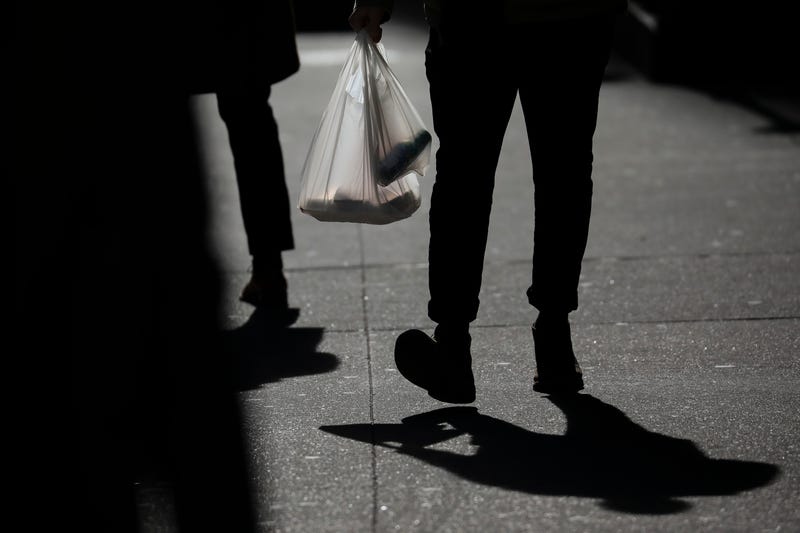
TRENTON, N.J. (1010 WINS) -- Stores and food service businesses in New Jersey will soon be barred from using plastic bags and foam food containers.
Gov. Phil Murphy on Wednesday signed off on legislation that will ban single-use plastic and paper bags, as well as disposable polystyrene foam food containers and cups, starting May 2022, he said in a release.
The law will also prohibit food service businesses from using single-use plastic straws starting November 2021, unless a customer requests one, the release said.
New Jersey is focused on transitioning to reusable bag use, Murphy said.
“Plastic bags are one of the most problematic forms of garbage, leading to millions of discarded bags that stream annually into our landfills, rivers and oceans,” he said in a statement. “With today’s historic bill signing, we are addressing the problem of plastic pollution head-on with solutions that will help mitigate climate change and strengthen our environment for future generations."
The law does provide a longer transition period for the phasing out of some items. Stores and businesses will have until May 2024 to phase out the following items, according to the release:
• Disposable, long-handled polystyrene foam soda spoons when required and used for thick drinks
• Portion cups of two ounces or less, if used for hot foods or foods requiring lids.
• Meat and fish trays for raw or butchered meat, including poultry, or fish that is sold from a refrigerator or similar retail appliance.
• Any food product pre-packaged by the manufacturer with a polystyrene foam food service product.
• Any other polystyrene foam food service product as determined necessary by Department of Environmental Protection.
Businesses including “restaurants, convenience stores, food trucks, movie theaters and grocery stores that are 2,500 square feet or larger” are subject to the ban, NJ.com noted.
Some businesses — including those that bring in less than $500,000 per year — will be eligible for exemptions to the ban, but will need approval from the New Jersey Department of Environmental Protection, according to the outlet.
